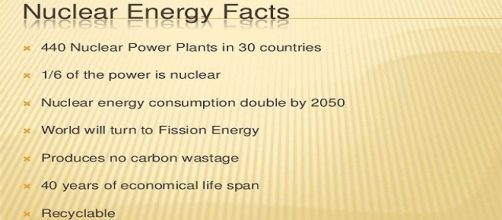Energy is beginning to enter a critical era and it is vital for divestment away from fossil fuels and investment into the Renewables sector to improve sustainability, environmental and economic issues. With energy needs also increasing, it is becoming difficult to judge which avenue to go down. Nuclear is often cited as a clean energy but do the costs outweigh the benefits? And how does the removal of the nuclear industry effect the people who work within it, and how can those issues be alleviated?
According to the Department of Business, Energy and Industrial Strategy (BEIS) the UK energy mix consists of gas, providing the largest share (30%), renewables (24.7%), coal (22%), and nuclear (21%).
Along with other (2.2%) and oil (0.6%).
Jobs and public opinion
Nuclear energy is ranked highest in the UK for job creation and investment, this means there is a lot at stake for the industry. In 2016 it is estimated that there were 65,791 jobs throughout NIA membership and within those numbers 14,531 are women, 1,940 are on apprenticeships and 1,074 people on nuclear graduate schemes.
There is also a significant regional effect because a vast amount of jobs is based in the North, with 28,435 jobs based in the North West alone, the South West is the next largest share (7,421) followed closely by various site and home based workers (6,719).
A YouGov poll conducted in November 2015 saw that there is high public support for new builds within the nuclear sector, with Net support at 41%, no opinion next on 39% and Net opposition at just 20%.
According to YouGov, for the last 9 years there has been public support for nuclear power, but in 2011 Net support dropped below the 40% since 2007.
The poll conducted by YouGov in 2015 also showed that nuclear is the most secure source of energy, with 45% of people surveyed answering nuclear, followed by offshore wind and gas at 15 and 14 percent respectively. Fracking places last with just 2% of public opinion convinced that it is a secure energy supply.
Key facts
Nuclear is essentially carbon free as no CO2 is produced during operation, and avoids emissions of 49 million tonnes a year and this is the equivalent of taking a third of Britain’s cars off the road. Low carbon technologies play a key role in job creation, and will create thousands of new jobs with estimate of around 25,000 in nuclear alone.
All developers for new builds would have already set aside funds for decommissioning and waste management and nuclear plants can provide safe, reliable, and clean energy for UK homes, schools, hospitals, and industry for up to 60 years. Plus, as a home-grown source of energy it reduces dependence on imported fossil fuels that boosts the UK’s security of supply.

